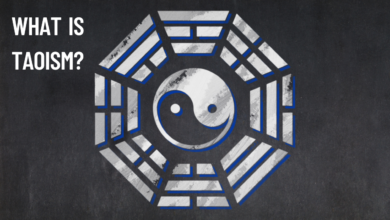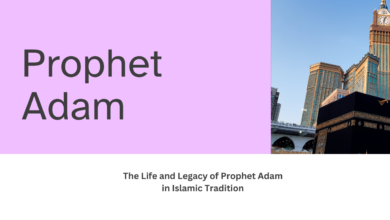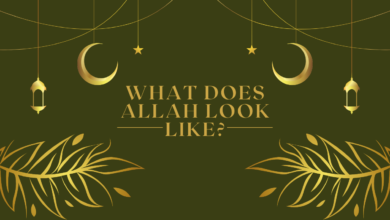How does God Look Like in Islam?
The Unique Concept of God in Islam: Transcendence and Oneness
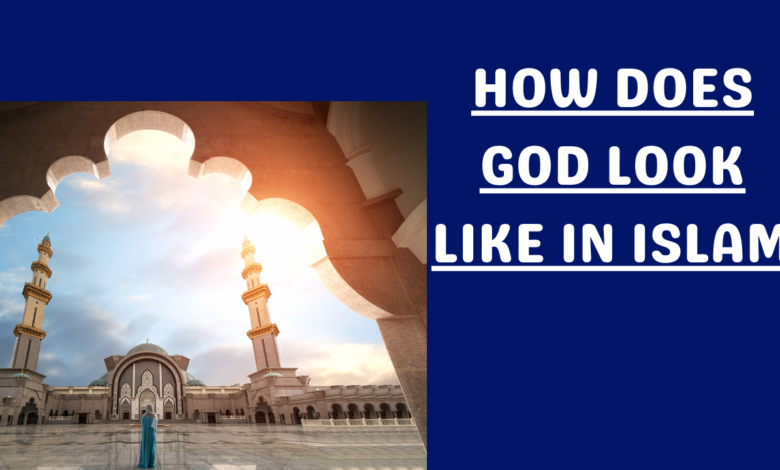
How does God Look Like in Islam?
No, Islam does not provide a physical description of God. In Islamic theology, God, known as Allah, is beyond human comprehension and is not depicted in any physical form.
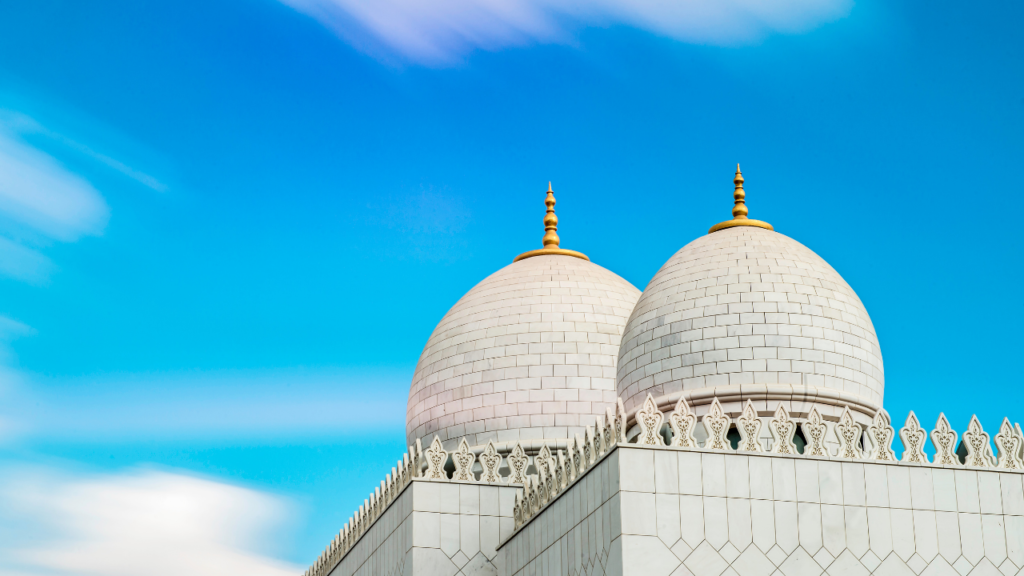
Introduction
The concept of God in Islam is both profound and distinct. In Islam, God is known as Allah, and the Islamic understanding of the divine is characterized by a unique and powerful set of beliefs. Unlike many other religions, Islam holds a very specific perspective on how God is perceived and does not depict Allah in any physical form. Instead, Islam focuses on the transcendental and incomprehensible nature of the divine.
Also check.
- Where did Islam Originate?
- When was Islam Founded?
- What is the Holy Book of Islam?
- When was Islam Founded?
- What Is The Fourth Pillar Of Islam?
Points of How does God Look Like in Islam?
- Tawhid: The Oneness of God:
- Central to Islamic theology is the principle of Tawhid, which means the absolute oneness of God. This belief asserts that Allah is unique and without any partners or associates. In the Quran, the holy book of Islam, it is stated: “Say: He is Allah, [Who is] One, Allah, the Eternal Refuge. He neither begets nor is born, nor is there to Him any equivalent” (Quran 112:1-4). This verse underscores the uncompromising oneness of Allah, emphasizing that there is no one like Him.
- Anthropomorphism Rejected:
- Islam categorically rejects the concept of anthropomorphism, which is the attribution of human characteristics or physical form to the divine. The Quran is explicit in stating that Allah does not resemble any of His creations. In Surah Ash-Shura (42:11), it is mentioned: “There is nothing like unto Him, and He is the Hearing, the Seeing.” This verse makes it clear that Allah is beyond human understanding and cannot be likened to any created being.
- Beyond Human Comprehension:
- In Islamic theology, Allah’s essence is beyond human comprehension. Muslims believe that God is transcendent, omnipotent, and beyond the limitations of the physical world. While human language and thought can provide some understanding of God’s attributes, they can never fully encapsulate the entirety of His divine nature.
- The Role of God’s Attributes:
- While Islam does not provide a visual image of God, it does emphasize the understanding of God through His attributes. The Quran describes Allah through His attributes such as Al-Rahman (the Most Gracious), Al-Raheem (the Most Merciful), Al-Hakeem (the Most Wise), and Al-Qadir (the All-Powerful). These attributes help believers comprehend God’s nature in terms of His qualities rather than His physical form.
- The Unseen and the Afterlife:
- Islam places great importance on the belief in the unseen, including God’s existence in a realm beyond human perception. The concept of life after death is a significant component of Islamic faith. Muslims believe that they will be held accountable for their actions in the Hereafter, a realm that is fundamentally different from the physical world.
- The Importance of Worship:
- Islamic faith places a strong emphasis on the worship of Allah and submission to His will. While God’s physical form remains a mystery, Muslims are encouraged to cultivate a deep spiritual connection with Him through prayer, devotion, and acts of worship.
Conclusion
In conclusion, Islam offers a unique and distinctive perspective on the nature of God. In contrast to other religions that might depict God in various human or divine forms, Islam adheres to the doctrine of Tawhid, emphasizing the absolute oneness and transcendence of Allah. While the concept of God in Islam may not provide a visual representation, it guides believers to focus on understanding God through His attributes, cultivating a profound connection with the divine, and placing their trust in the unseen and the Hereafter. This theological approach underscores the depth and complexity of the Islamic understanding of God, which is central to the faith of over a billion Muslims worldwide.
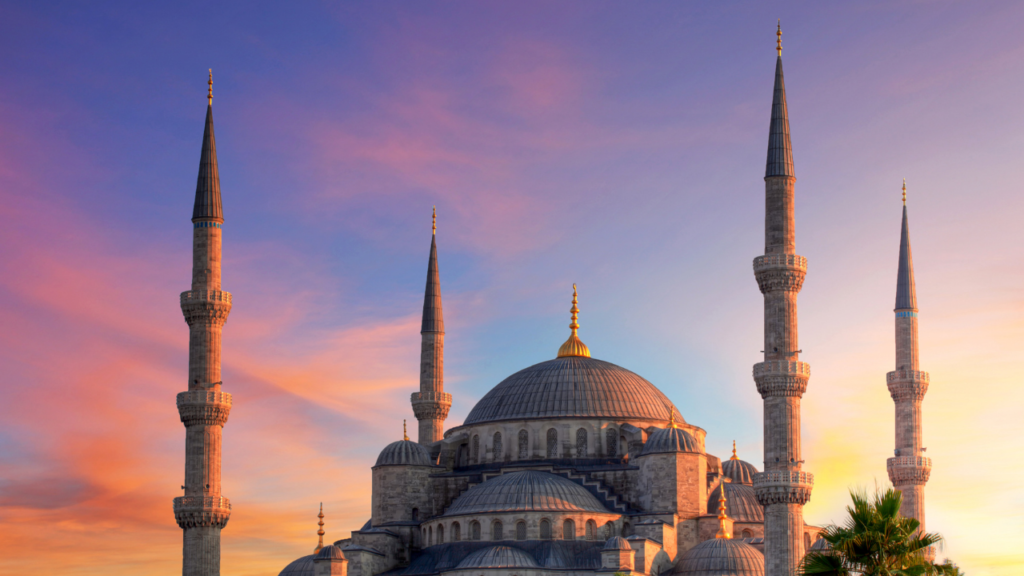
FAQs
Does Islam provide a physical description of what God looks like?
No, Islam does not provide a physical description of God. In Islamic theology, God, known as Allah, is beyond human comprehension and is not depicted in any physical form.
How is God’s nature understood in Islam?
God’s nature in Islam is understood through His attributes and qualities, such as His mercy, wisdom, and power. Muslims focus on understanding God through His attributes rather than His physical form.
What is Tawhid, and why is it important in Islam?
Tawhid is the concept of the oneness of God in Islam. It is crucial because it emphasizes that there is only one God, Allah, and there are no partners or associates. This belief underscores the uniqueness and absolute oneness of God.
Why does Islam reject anthropomorphism?
Islam rejects anthropomorphism because it is the attribution of human characteristics or physical form to the divine, which contradicts the belief in God’s transcendence and uniqueness. The Quran explicitly states that there is nothing like God.
Can God be fully understood by humans in Islam?
According to Islamic beliefs, God’s essence is beyond human understanding. While His attributes and qualities can be comprehended to some extent, humans can never fully grasp the entirety of His divine nature.
What role does worship play in understanding God in Islam?
Worship is central in Islam as it allows believers to develop a deep spiritual connection with God. Through acts of devotion, prayer, and submission to God’s will, Muslims seek to strengthen their relationship with the divine.
How does Islam emphasize the concept of the unseen and the Hereafter?
Islam places significant importance on the belief in the unseen and the Hereafter. Muslims believe that God exists in a realm beyond human perception, and they will be held accountable for their actions in the afterlife, which is fundamentally different from the physical world.
Are there any visual representations or symbols for God in Islamic tradition?
No, there are no visual representations or symbols for God in Islamic tradition. Islam strictly prohibits the use of images or symbols to depict God.
How do Muslims approach prayer and devotion as a means to connect with God?
Muslims pray five times a day and engage in various acts of worship to strengthen their connection with God. These practices are a way to express devotion and submission to the divine.
Can one convert to Islam without needing to change their perception of God?
Conversion to Islam involves accepting the Islamic understanding of God, which is based on the oneness of Allah and His transcendence. Those converting to Islam typically embrace this perspective of God as part of their faith.

